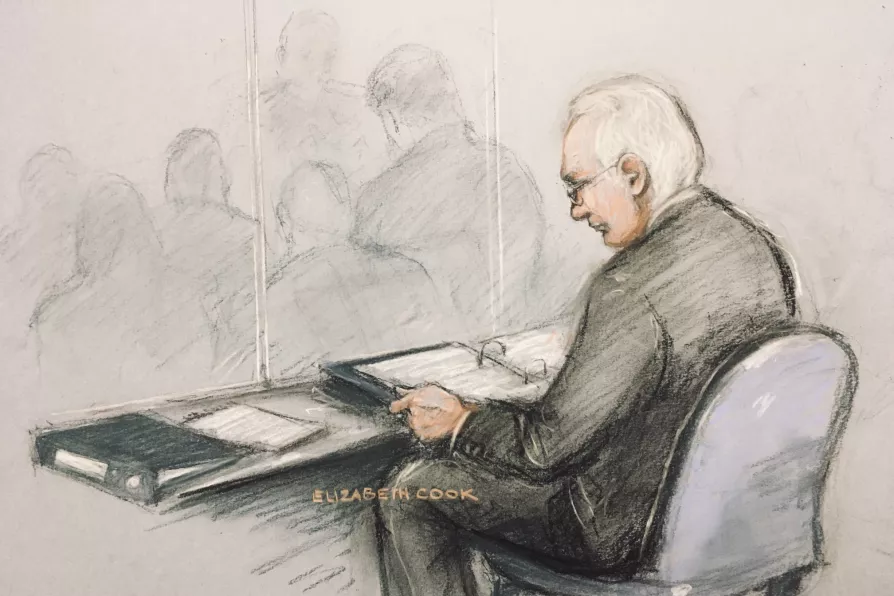Trump wanted Assange's ‘head on a pike,’ extradition hears

 Court artist sketch by Elizabeth Cook of Wikileaks founder Julian Assange in the dock reading his papers as he appears at Belmarsh Magistrates' Court in London for his extradition hearing.
Court artist sketch by Elizabeth Cook of Wikileaks founder Julian Assange in the dock reading his papers as he appears at Belmarsh Magistrates' Court in London for his extradition hearing.
US PRESIDENT Donald Trump wanted Julian Assange’s “head on a pike,” the WikiLeaks founder’s defence said yesterday as his extradition hearing began.
The decision to “ramp up the charges” against Mr Assange was intended to make him an example, Edward Fitzgerald QC said on behalf of the imprisoned journalist.
A knot of protesters gathered outside Woolwich Crown Court in south-east London, with their songs and chants audible in the courtroom throughout.
Similar stories

International solidarity can ensure that Trump and his machine cannot prevail without a level of political and economic cost that he will not want to pay, argues CLAUDIA WEBBE

VIJAY PRASHAD examines why in 2018 Washington started to take an increasingly belligerent stance towards ‘near peer rivals’ – Russa and China – with far-reaching geopolitical effects












